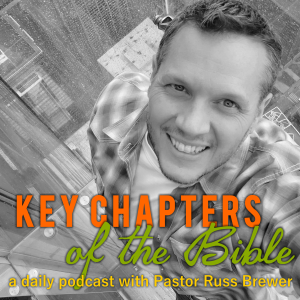
Most people come to a place in life where they don't know the way forward. Today's study in Exodus 14 will give some insights about how to proceed. Today we're going to study the account of the Red Sea Crossing. This is one of the most famous records in the Bible, and for good reason. Not only is this miracle awesome in its power, but it's inspirational in its meaning. Join us!
DISCUSSION AND STUDY QUESTIONS:
Exodus 14 1. Think about the past several chapters we have studied. What events have led up to Exodus 14? What do you think the emotional state would have been for these people? How would you have felt if you were facing the same kinds of obstacles?
2. In verses 1 & 2, the Lord tells Moses to lead the people southward. From a human standpoint, they should be heading northeast. We know the Lord has a clear reason for this instruction, but from a human perspective, how might this seem like confusion? How did the Lord use this to further harden Pharaoh’s heart in verses 4 & 8?
3. In verse 5, Pharaoh had a change of heart. What was this change? How did this change continue Pharaoh’s rebellion against the Lord?
4. In verse 7, the Egyptians assembled 600 chariots. In terms of military and technological power, what did these chariots represent? However, when they are matched against the Lord, what “power” did they have? Why? How can this encourage us when we are facing overwhelming obstacles in our lives?
5. When the Israelites saw the Egyptians, how did they respond in verses 11 & 12? What did their response reveal about the spiritual vitality of their faith? What were they forgetting?
6. What was Moses’ response to the people in verse 13? Where were they to put their trust? Why do you think they were supposed to keep silent in verse 14?
7. In verse 15, the Lord tells Moses to “go forward.” What would they be going forward into? Did “obedience” make sense at this point? Why were they supposed to go forward anyway? What lesson can we glean from how to face life’s difficulties with faith and obedience?
8. As the people crossed the Red Sea, how does verse 22 describe the water? How does verse 21 describe the land? What do you think this would have looked like? What do you think the people would have been thinking as they walked along this dry land with these walls of water on either side?
9. Who did the Egyptians acknowledge was fighting for the Jews in verse 25? What does it look like when God is “fighting for” someone? What does it look like when a person is fighting against Him?
10. Sometimes people say that this whole event took place in shallow water so that Moses and the people wadded across. What happened to Pharaoh’s army in verses 27 & 28? Is it likely they drowned in shallow water?
11. Once this whole event concludes, how does verse 31 describe the people’s faith? How should we understand their belief in light of Hebrews 3:15-19? Where does this passage give us windows into the false nature of their faith? How is this reality a warning to us to be sure that we are truly trusting in the Lord, and not just giving Him lip service when we want something from Him?
Check out our Bible Study Guide on the Key Chapters of Genesis! Available on Amazon!
To see our dedicated podcast website with access to all our episodes and other resources, visit us at: www.keychapters.org.
Find us on all major platforms, or use these direct links:
Spotify: https://open.spotify.com/show/6OqbnDRrfuyHRmkpUSyoHv
Itunes: https://podcasts.apple.com/us/podcast/366-key-chapters-in-the-bible/id1493571819
YouTube: Key Chapters of the Bible on YouTube.
As always, we are grateful to be included in the "Top 100 Bible Podcasts to Follow" from Feedspot.com.
Also for regularly being awarded "Podcast of the Day" from PlayerFM.
Special thanks to Joseph McDade for providing our theme music.
More Episodes
 2023-12-10
2023-12-10
 2023-12-09
2023-12-09
 2023-12-06
2023-12-06
 2023-12-06
2023-12-06
 2023-11-29
2023-11-29
 2023-11-28
2023-11-28
 2023-11-27
2023-11-27
 2023-11-23
2023-11-23
 2023-11-21
2023-11-21
 2023-11-20
2023-11-20
 2023-11-18
2023-11-18
Create your
podcast in
minutes
- Full-featured podcast site
- Unlimited storage and bandwidth
- Comprehensive podcast stats
- Distribute to Apple Podcasts, Spotify, and more
- Make money with your podcast
It is Free
- Privacy Policy
- Cookie Policy
- Terms of Use
- Consent Preferences
- Copyright © 2015-2024 Podbean.com





